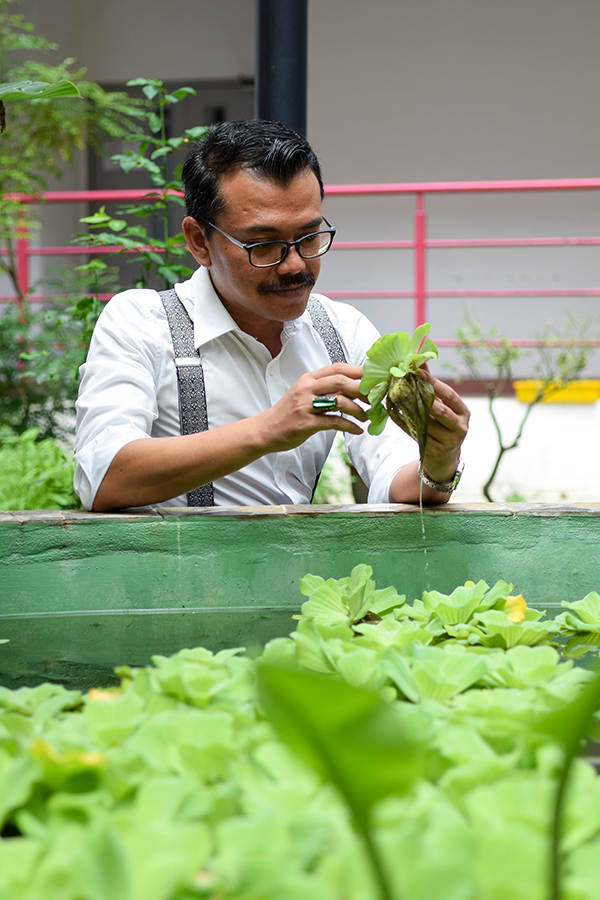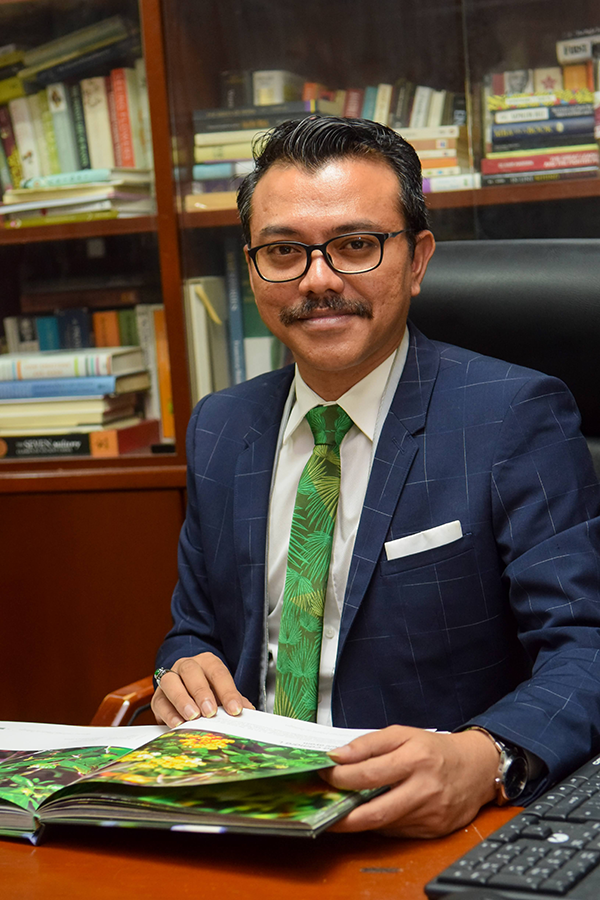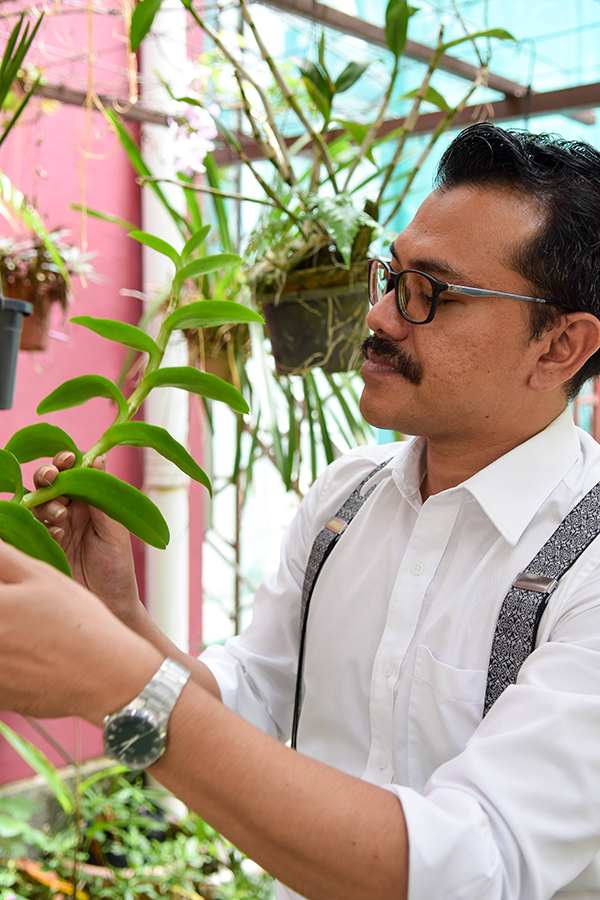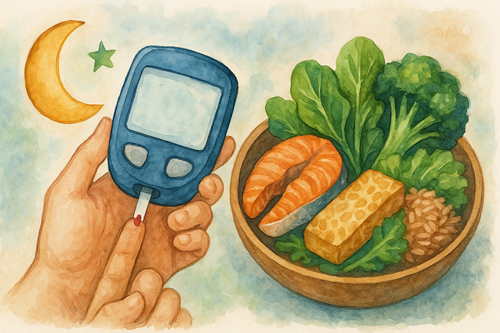Article Summary
A career in agricultural botany is not popular in this country, and the community might view it as having only a limited function. But do you know that in developing the agricultural sector, the role of agricultural botany is important to ensure the diversity of potential crops and the best crop varieties in the country's agricultural sector?
By: Noor Eszereen Juferi
Photo by: Saleha Haron
A career in agricultural botany is not popular in this country, and the community might view it as having only a limited function. But do you know that in developing the agricultural sector, the role of agricultural botany is important to ensure the diversity of potential crops and the best crop varieties in the country's agricultural sector?
Senior Lecturer from the Department of Crop Science, Faculty of Agriculture, Universiti Putra Malaysia (UPM), Dr. Firdaus Ismail, said botany is a branch of agricultural studies that looks at the biological aspects of a plant. This includes its classification, identification, structure, and function in determining alternative plants with high potential and the best breeds to be domesticated and commercialised to ensure food security.
"Finding alternative plants which can guarantee food security and generate income are among the jobs of agricultural botany by identifying and establishing suitable plant breeds that have future potential," he said.
He added that the higher education sector in the country has put in efforts to produce future-proof graduates; similarly, the field of agricultural botany is responsible for focusing on future-proof crops for the country’s agricultural sector.
"This is to ensure the sustainability of agricultural production in facing various challenges such as falling commodity prices, population growth, lack of suitable plantation areas, susceptibility to diseases, water use, rising agricultural input costs, labour shortages, consumer appetite, and global climate change," he said.
He added that a career in agricultural botany is interesting when issues on plant polemic, such as misunderstandings on the functions and risks posed by certain plants, are raised; for instance, the concerns raised by the community on certain decorative indoor plants or the suitability of planting certain plants in public places that could risk the safety of road users.
In addition, the eagerness of certain parties to bring new plant types into the country can sometimes become the source of various risks and issues. Thus, intensive and comprehensive assessments from the point of view of agricultural botany concerning the suitability of the plants and the risk of spreading plant-related diseases are necessary. This will ensure that plants brought into the country yield a lucrative income instead of threatening the existing plant industry. This is why Dr. Firdaus frequently appears in the press and media, as he offers scientific explanations from an academic perspective on plant-related issues.
According to Dr. Firdaus, a UPM alumnus, sharing his personal views on plants is rather 'romantic'.
"Although the field is categorised as a science field, it is actually an art. Studying in the agricultural botany course requires careful observations to record and illustrate plants so that they can be identified and a complete description can be made," he said.
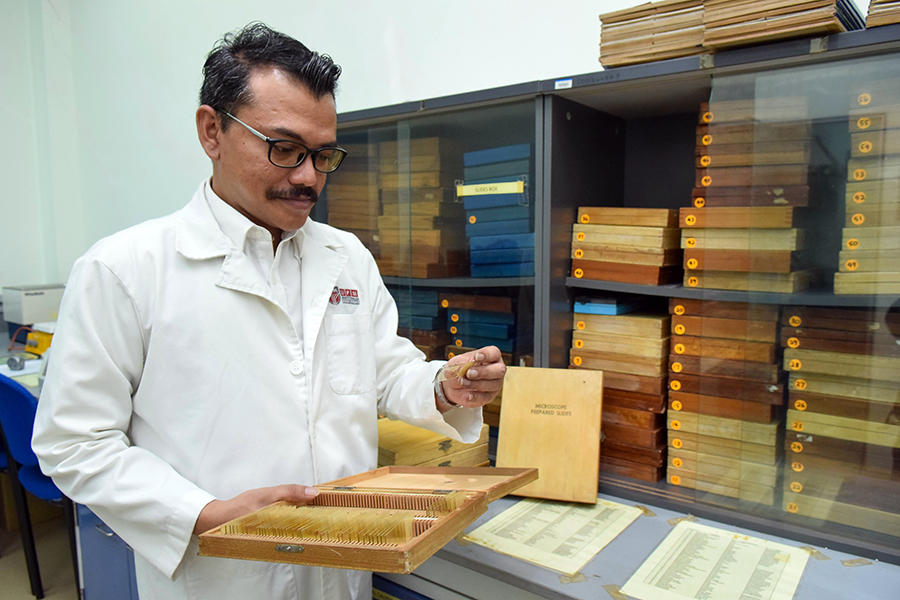
He cited his experience carrying out a PhD research project on pollination ecology in which he had to make in-depth observations on the interaction between a plant and its environment. This made him realise the beauty of the world of plants.
“Agricultural botany is a fascinating field for exploration because it allows us to see the beauty of a plant species and its potential instead of merely viewing it as a boring and stationary entity. The knowledge of agricultural botany will certainly make a person closer to nature and appreciate the beauty of God’s creations," he said.
Besides, learning about agricultural botany helps us optimally manage and exploit existing plant species to obtain lucrative yields and determine their actual use.
Knowledge of agricultural botany also provides a better understanding of a plant species and helps avoid confusion and misunderstanding. As the saying goes, ‘tak kenal maka tak cinta’ (You can’t love or appreciate what you don’t know).
"As Malaysians, we are blessed with a land rich with an abundance of flora and fauna diversity that we are crowned as one of the richest countries in terms of biodiversity. Thus, it is recommended that we get to know and appreciate the country’s natural treasures," he said.
Hailing from Pasir Mas, Kelantan, he said many people still view agricultural programmes as the 'last resort’, despite their importance for continued progress in the country’s agricultural field.
“To me UPM is a reputable educational institution in the field of agriculture since it has the facilities and is fully equipped. The teaching staff at the Faculty of Agriculture also has various backgrounds with extensive local and international experience," he said.
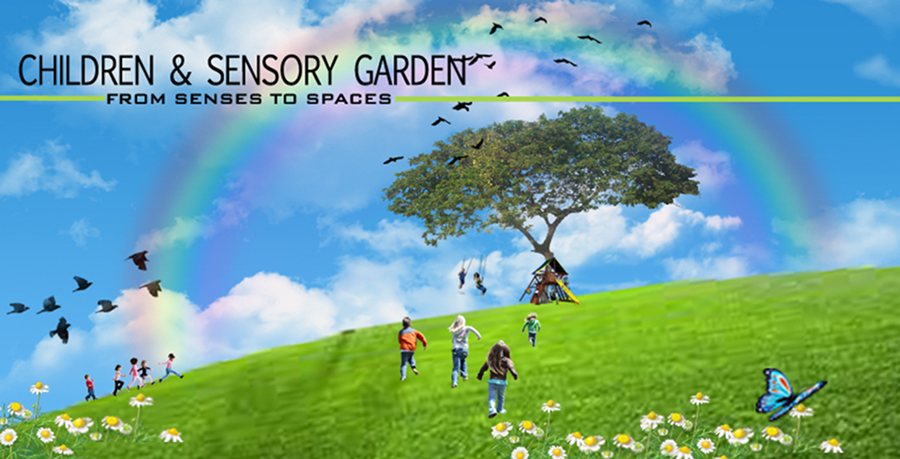
Dr. Firdaus was also involved in the Children and Sensory Garden project, a garden based on the concepts designed for children and enhancing one’s senses, inspired by DYMM Tuanku Chancellor of UPM.
According to him, the park, with the theme 'Temasya', was inspired by Temasya Town, a town known as the Royal Town after the Klang War in 1867. It has played an essential role in the political development and the State of Selangor.
"The design of the park is one of its kind in Malaysia. Thus, it is an interesting edu-tourism destination at UPM. It also allows the public to explore the park in a relaxing manner," he said.
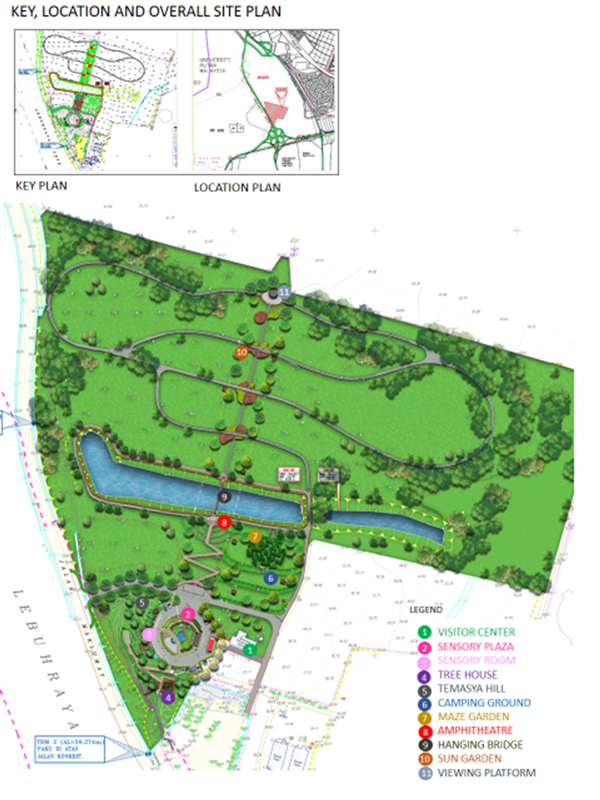
The layout of the Children and Sensory Garden is made up of several main components, which include the Touch Garden; Rock Garden; Taste Garden, with the design elements of edible spice and food gardens; Smell Garden; Sun Garden, which is filled with red and yellow flowers; and Sound Garden, focuses on the water and wind elements to produce sounds within the 7-acre land.
Meanwhile, agricultural botany has also allowed Dr. Firdaus to develop his career and expertise. He was entrusted with several responsibilities during his service. For example, for approximately five years, he was the coordinator of the Biodiversity Unit at the Bioscience Institute that manages the herbarium laboratory, a plant tissue culture laboratory, an essential oil extraction laboratory, a plant nursery, a plantation as well as UPM Conservatory Garden.
His enthusiasm to develop an interest in agricultural botany has resulted in a creative programme known as the terrarium and mini garden exhibition organised in 2015 as part of the student activities in the agricultural botany course. The exhibition later developed into the Vivarium Festival. The programme has exposed and engaged Dr. Firdaus more actively with student development activities to the extent that he was later appointed as the advisor for the Bachelor of Agricultural Science Club, Faculty of Agriculture, UPM, from 2015 to 2020.
His experience in student development activities eventually led him to further explore student development programmes by becoming a residential college fellow at UPM. He started at Kolej Mohamad Rashid and then joined Kolej Tan Sri Aishah Ghani (formerly known as Kolej 13) and served there for more than five years before he was appointed as the principal of the Fourteenth College and secretary of the UPM Board of Residential College Principals from February 2022 until now.
Dr. Firdaus' interest in agricultural botany is evident in his academic writing on agricultural botany in the form of journal articles. He was also involved in the writing of several books on plants as a co-author and photographer, such as Glorious Landscape Plants in Selangor, inspired by Tuanku Chancellor of UPM, published by UPM Press in 2016; Ulam-ulaman Khazanah Negara & 1001 khasiat, published by the Federal Marketing Board (FAMA) and launched by YMM Raja Permaisuri Agong in 2019; and Scientific Evidence: Malaysian Medicinal Plants with Wound Healing Properties, published by UPM Press in 2021, which won the best science and technology book category in the National Book Award 2022.
In 2015, Dr. Firdaus participated in the Bird-themed Nature’s Yield and Wonders of Art Exhibition 2015 (Nyawa 2015: Burung) held at UPM Serdang Gallery with his creation, a pendant-shaped artefact, and writing of a short article titled: Lovebirds, which shows his love for biodiversity and nature.
The importance of agricultural botany and Dr. Firdaus’s passion towards the field are apparent in research conducted by him, such as the project assesses the potential of various types of plants in the ginger family, research on durian pollination and herb plants for bath, and several other research projects which assess plant potential and diversity. The study carried out with his research team has produced several Master's students in agronomy with a focus on the aspects of diversity and agricultural botanical methods.
Meanwhile, Dr. Firdaus is involved in several community projects and industry networks, including the Aromatic Plants for the Community project, in which he collaborated with the Department of Agriculture Malaysia based in the Gombak District from 2018 to 2021 and in Sepang from 2019 to 2020. - UPM
Date of Input: 07/12/2022 | Updated: 18/12/2023 | hairul_nizam
MEDIA SHARING











